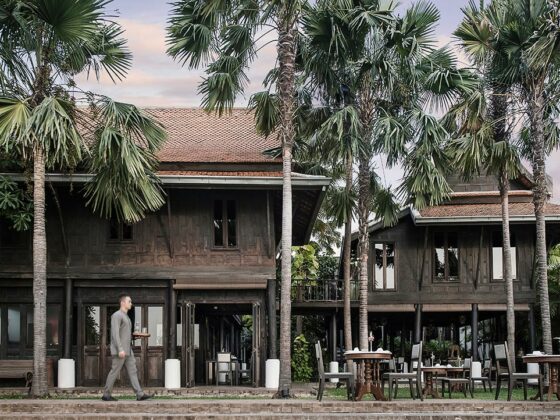Hospitality businesses can increase the perceived value of their internships by incorporating meaningful coworker socializing experiences and professional relationships for interns, according to a new study from researchers in the Penn State School of Hospitality Management.
The research team also found that skill variety, supervisor support, and exposure to role models are critical drivers of valuable and impactful internships.
Led by Associate Professor Michael Tews, the research team published its findings in the International Hospitality Review.
Internships are a pivotal developmental period for students and a key lever for enhancing long-term engagement in the hospitality industry
, Tews said. Investigating what makes an internship valuable helps identify what supports successful transitions into the workforce.
The research team surveyed 253 students, all of whom completed two different five-month internships. Students answered questions about fun activities that occurred during the internship, coworker socializing, a manager’s support for fun, supervisor support, task and skill variety, role models, work-life balance, perceived internship value, and willingness to commit to a career in the hospitality industry.
The findings showed that skill variety—the opportunity to use multiple, complex, or high-level skills—is significantly related to how valuable students perceive their internships to be
, Tews said. In contrast, task variety, or doing a range of different tasks, was not a significant predictor.
Tews said this suggests assignments for interns need to be challenging and developmental.
Skill variety, especially in operational internships, signals to students they are growing professionally, which strengthens their commitment to the hospitality industry, according to Tews.
Supervisor support and the presence of role models also played a critical role in shaping a meaningful and motivating internship experience
, Tews said. Supportive supervisors helped interns feel valued and cared for, which can increase engagement, confidence, and perceived internship value.
Tews said role models—whether senior leaders or mid-level professionals—give interns someone to learn from and envision themselves becoming, which helps young workers develop a stronger connection to their work and see a clear career path in the industry.
The transition from school to work can be a significant challenge for recent graduates, especially in industries like hospitality that demand high levels of social interaction, resilience, and adaptability
, Tews said.
Tews said recent news stories about students feeling overwhelmed in their first jobs underscore the need for high-quality internship experiences that bridge academic learning with real-world practice.
Hospitality companies can use these findings to redesign internships to better attract, engage and retain young talent, according to Tews.
Tews said hospitality businesses should provide challenging assignments that allow interns to apply and expand their skills and ensure supervisors are trained to support and mentor interns—not just manage them. Companies should also intentionally connect interns with role models, such as through shadowing, mentorship programs, or leadership talks, according to Tews.
Workplace culture—especially peer relationships, meaningful work, and strong mentorship—matters more than superficial efforts to inject fun
, Tews said. Organizations that align internship design with these insights are more likely to leave interns with a positive impression of the industry and increase the likelihood that interns pursue long-term careers in hospitality.
Sydney Pons, Penn State doctoral student, and Ankie Hoefnagels and Fanny Beaumont-Perez of the Zuyd University of Applied Sciences collaborated on this research.
About Penn State School of Hospitality Management
Established in 1937 Penn State’s School of Hospitality Management is one of the nation’s oldest and most respected. Its top-ranked undergraduate and doctoral programs prepare global leaders with a rigorous, diverse curriculum focused, since its inception, on engaged scholarship, featuring partnerships with Penn State’s Hospitality Services, Housing and Food Services, and top global hospitality brands. It’s also home to the oldest Penn State alumni program group, The Penn State Hotel and Restaurant Society.
Ben Jellison
Director of Industry and Alumni Relations
814-865-6728
Penn State School of Hospitality Management









